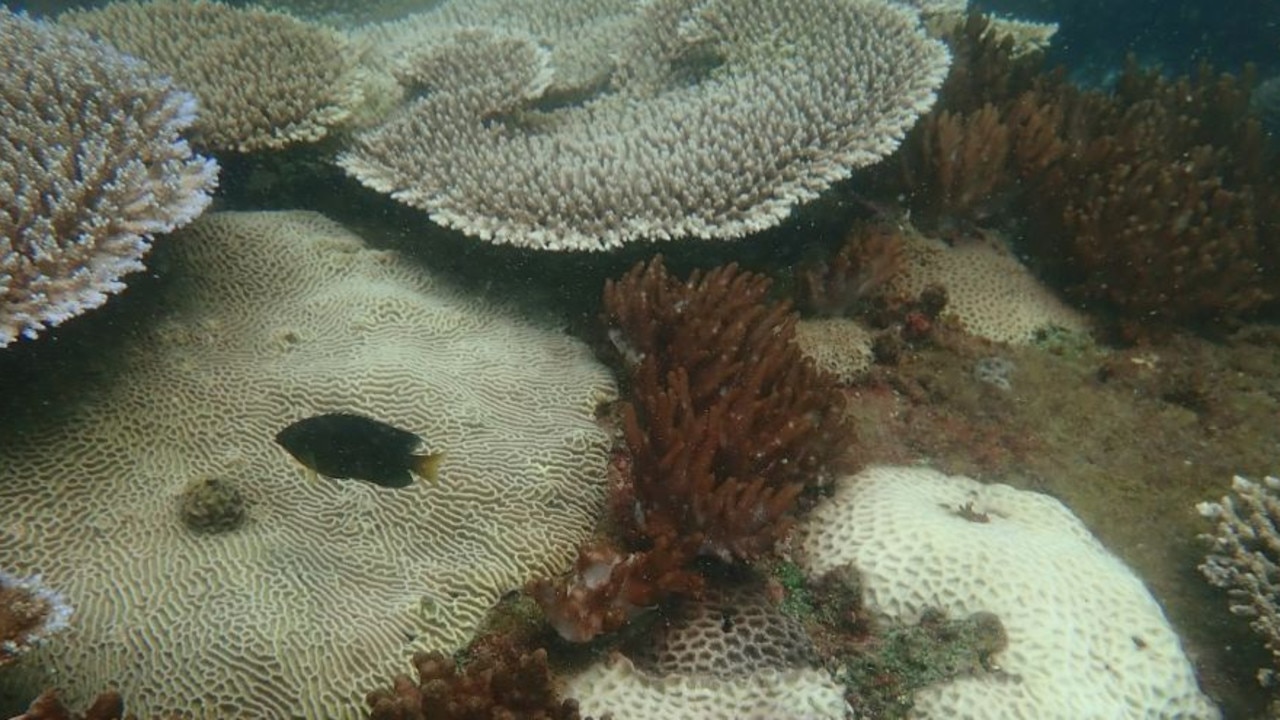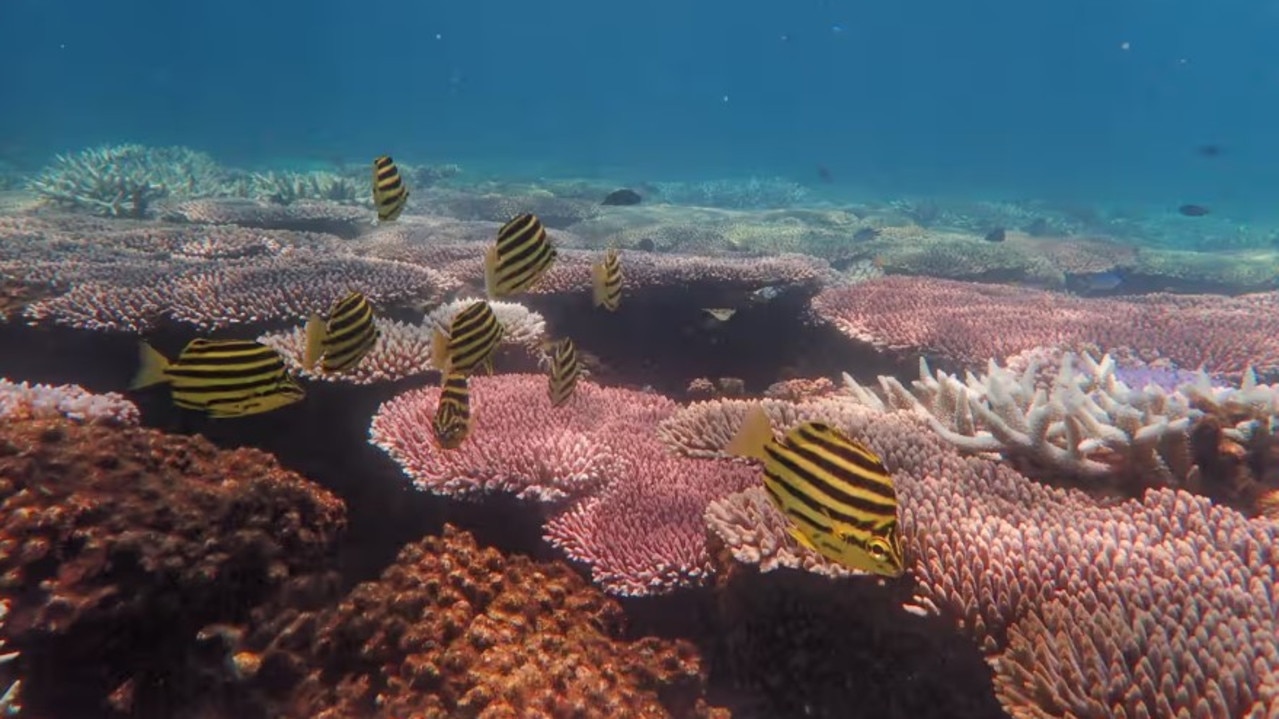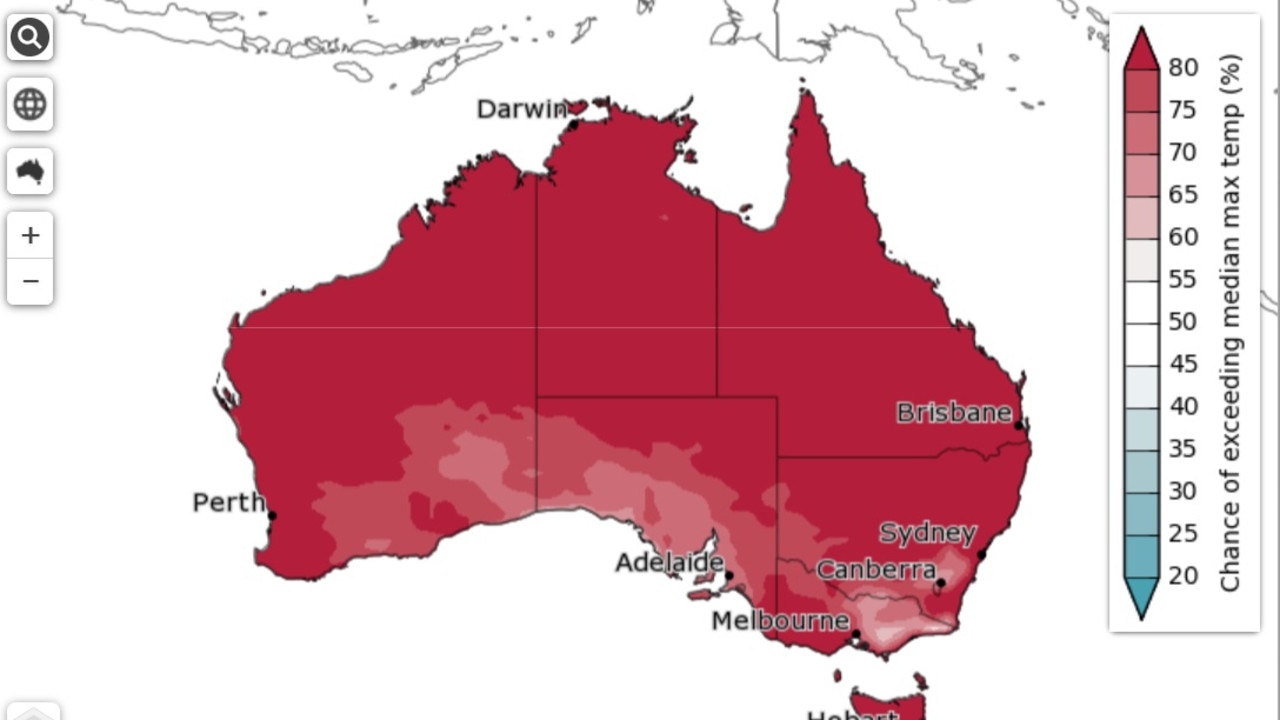Fears of ‘mass bleaching event’ at the Great Barrier Reef as 1100km impacted
There are fears the Great Barrier Reef is undergoing its seventh mass bleaching event after widespread bleaching was observed.

Heat stress is causing widespread bleaching across the Great Barrier Reef in Queensland.
Surveys by the Great Barrier Reef Marine Park Authority and the Australian Institute of Marine Science showed the beaching was “extensive and fairly uniform across all surveyed reefs”.
Corals are a colony of marine invertebrates and they have a symbiotic relationship with algae.
They can turn completely white when water warms or cools dramatically, and they react by expelling the algae.
It doesn’t mean the corals will certainly die, but rather the bleaching makes them more susceptible to disease and hampers reproduction.

However, severely bleached corals are likely to die if the water temperature remains too high for too long. They can recover if the temperature stabilises.
James Cook University (JCU), stated in a press release last week that scientists had spotted the first signs of serious bleaching with “moderate to severe coral bleaching” seen offshore east of Rockhampton at the Keppels.
The bleaching was discovered during routine surveys in the tourist hotspot, which is also critical for recreational and commercial fishing.
Researchers believe fish are becoming less abundant around the Keppels due to factors including bleaching and overfishing.
The Guardianreports that bleaching had been seen across a 1100km stretch of the Great Barrier Reef from the Keppels in the south to Lizard Island in the north.

Of the 27 sites inspected at the Keppels, “most sites showing signs of bleaching”, with only corals in deeper waters unimpacted by the heat stress.
Scientist Dr Maya Srinivasan, from JCU’s Centre for Tropical Water and Aquatic Ecosystem Research (TropWATER), said the water temperatures around the Keppels were well above average, hitting 29C on multiple days.
“I have been working on these reefs for nearly 20 years and I have never felt the water as warm as this,” she said.
“Once we were in the water, we could instantly see parts of the reef that were completely white from severe bleaching. Some corals were already dying.”
She observed that the corals could recover if the water cooled.

“We did see the temperatures begin to drop towards the end of the trip,” she added.
The Bureau of Meteorology warned in its recent climate outlook that temperatures were expected to be above the median for most of the country over the next few months due to record warm oceans globally and a weakening El Nino.
The current bleaching could be the seventh mass bleaching event to hit the World Heritage-listed Great Barrier Reef in recent history.
Mass bleaching events were observed on the Great Barrier Reef — which is listed as one of the Seven Natural Wonders of the World — in 1998, 2002, 2016, 2017 and 2020, CNN reported.
TropWATER plans to survey reefs in the far northern Great Barrier Reef as well as Magnetic Island, and the Cumberland Islands.
Associate Professor Scott Heron from James Cook University warned in 2022 that global warming would have catastrophic consequences from almost all coral reefs.
Last year was the hottest year on record, according to United Nations World Meteorological Organization chief Petteri Taalas, with greenhouse gas levels at a cord high and Antarctic sea ice at a record low.






